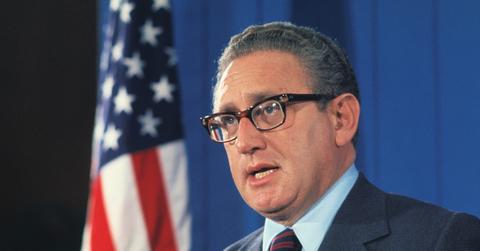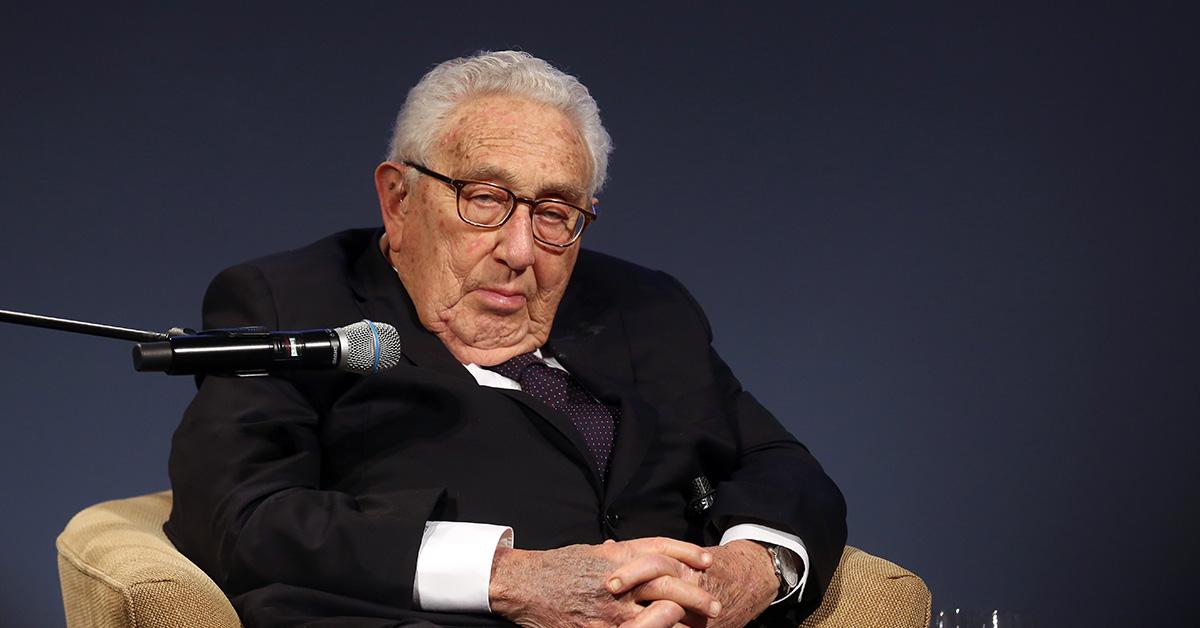Henry Kissinger Was One of the Most Hated Men in the History of U.S. Government
Published Nov. 30 2023, 9:54 a.m. ET

The Gist:
- Henry Kissinger is one of the most controversial figures in the history of U.S. foreign policy.
- Some believe Kissinger, who served as Secretary of State under Richard Nixon and Gerald Ford, is a war criminal responsible for the deaths of millions, while others say he was a diplomatic genius who accomplished several major breakthroughs in foreign policy during his time in office.
- Kissinger was responsible for the carpet bombing of civilians in Cambodia, which may have killed as many as 500,000 people.
Even until his death, there were many politicians on both sides of the aisle who revered former Secretary of State Henry Kissinger as a masterful strategist and diplomat. Even with that support in Washington circles, though, there were perhaps even more people who believed that Kissinger's legacy was far more sinister than the one that most acknowledge.
Now, following the news that the famous diplomat and accused war criminal died at the age of 100 on Nov. 29, 2023, many are looking back at Kissinger's legacy and wondering why so many people despised him so strongly. Here's what we know.

Why do people hate Henry Kissinger?
People hate Henry Kissinger mainly because of the legacy he established as an advisor to Richard Nixon and Gerald Ford when they were president. Kissinger was a practitioner of what he described as realpolitik, which led him to frequently turn a blind eye or even sanction violence perpetrated by U.S. allies. Greg Grandin, a Yale historian who authored a book on Kissinger, estimates that he killed between 3 million and 4 million people through his actions as a diplomat.
Among the specific things Kissinger has been accused of doing include the carpet bombing of Cambodia, which killed many civilians and also extended the war in Vietnam, supplying the Pakistan army with weapons in their battle against the Bengalis, who were resisting an oppressive government, and sanctioning Indonesian violence in East Timor.
Typically, the bombing in Cambodia is considered to be the most egregious of his crimes, in part because it was difficult to justify. Kissinger came up with the strategy to disrupt communism in the region, but it's estimated that the strategy killed as many as 500,000 civilians. Many of the bombs from the U.S. campaign in the 1970s are still being triggered today, almost 50 years later.
Henry Kissinger is seen in some circles as a masterful diplomat.
Although these atrocities are a major part of Kissinger's record, and for many his defining legacy, those who defend the long-time diplomat would say that he was key to several major foreign policy victories during his time in government. Those victories include the opening up of China to the West as well as his introduction of a pragmatic approach to foreign policy.
Kissinger, who continued to advise presidents even after he formally left the White House, has a legacy that is likely to be litigated and relitigated for decades to come. For many, though, he is believed to be a war criminal who never had to pay for the massive death he unleashed on the world.